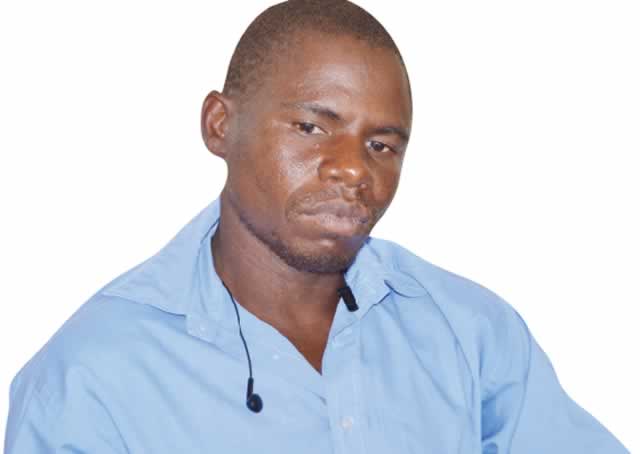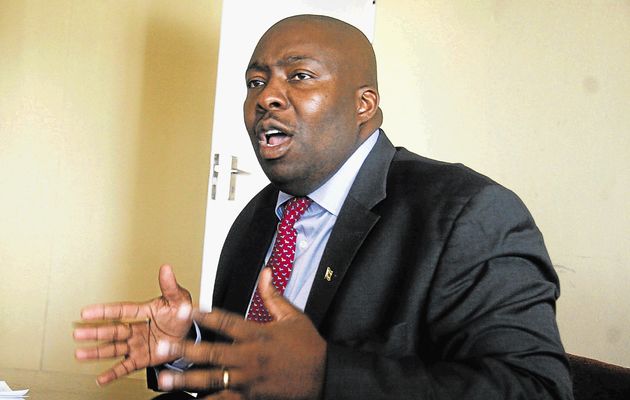Reflections of an ex-convict

Yoliswa Dube
AFTER serving a combined 18-year jail term for various crimes at Khami Maximum Prison on the outskirts of Bulawayo, Nqobizitha Mpofu, 36, made an undertaking never to commit crime again upon his release on June 1.
While in his cold cell one evening, he made a silent prayer of repentance. Mpofu knelt on the bare concrete floor, his eyes fixed on the prison cell bars, as he asked for God’s forgiveness for the series of crimes he committed in his life. He had robbed, assaulted, broke into buildings and stolen. Mpofu rued spending most of his adult life behind bars.
“The whole of my adult life was spent in prison. I was imprisoned for different crimes and each time I finished serving a sentence, I found myself back in prison. I’ve never experienced freedom until now. I was always in and out of prison and I suffered immensely while I was there,” said Mpofu.
He has been detained at various prisons. Kadoma Farm Prison, Kwekwe Prison, Bulawayo Prison, Plumtree Prison and eventually Khami Maximum Prison, have been his home for the past 18 years before he decided enough was enough. He had also become tired and frail.
Mpofu’s prison handlers regarded him as a “rude, naughty and stubborn” inmate resulting in them moving him from one prison to the other. “My heart was always racing,” he said. “I was always afraid and worried when a police officer approached me because I always felt guilty of one crime or another. Even when I’d done nothing wrong, I was always afraid. Sometimes I’d be locked up as police officers carried out their investigations. This was never easy because you’d be tortured in so many ways, yet I continued to commit more crime despite the pain from torture,” said Mpofu.
A life of crime and bondage was all he knew. In fact, he seemed to enjoy the adrenaline rush that came with the fast criminal life. Mpofu was arrested, tried and found guilty of several crimes on many occasions and would be sentenced to prison with hard labour.“But that shouldn’t be the way to go in life,” he now says in retrospect. “I blame the friends I had then. I had so many friends who led me astray. I succumbed to a lot of peer pressure and ended up doing the wrong things. My turning point came while I was in prison. I questioned myself on the life I was leading. I told myself I could do better with my life. I went on a journey of discovery. I needed to know who I was and where I was going with my life,’ said Mpofu.
Society had labelled him a hard core criminal but after enduring discrimination and ill-treatment, the ex-convict surprisingly did not leave prison a hardened criminal. He however regrets the time wasted in prisons. There is a lot he believes he could have done in 18 years, instead of wasting his life away in different prisons.
“I came to the realisation that I was someone who could make a success out of his life. I realised that the people I grew up with, those that were never involved in crime were doing well for themselves. They now have children, I don’t have any. I’m single and I’ve nothing to show for the 36 years that I have been on earth. I’ve nothing, absolutely nothing. I wasted a lot of time that I can never get back,” said Mpofu, his voice trembling with emotion and regret.
Living at the mercy of another human being and being treated like a second class citizen has made Mpofu regret every bead of sweat which dropped from his face onto the prison fields and every night he spent on a prison mat. Prison can never be home for a lost soul, a homeless person or someone abandoned by parents, he introspected. Even a mentally challenged person would not want to be locked up, said Mpofu.
“They could even run away if they saw a prison truck approaching because they know there’s no freedom or comfort in prison. I went through hell while I was locked up and it was a very difficult period of my life. I witnessed two inmates die. There were serious food shortages to a point that I don’t remember a single day when I had enough. It was so difficult working on an empty stomach, water was also scarce.”
To Mpofu, loneliness became the biggest enemy while incarcerated. It is what got to him the most as individualism took centre stage with inmates adopting an “each man for himself” stance. “I went through the toughest of situations and had no one to run to. There was no one to offer a shoulder to lean on. I realised that I could’ve died for nothing. There were easy come easy go transactions which caused me so much suffering. After a robbery, the money would disappear so fast I couldn’t even account for it.
“I realised that if all that hard work was for my personal benefit, I’d be far by now. I could’ve been farming or doing other work for money instead of working all those years for “mahala”.” An important aspect of the country’s prison system is ensuring ex-offenders are reformed, rehabilitated and re-integrated into society successfully.
“We’d do all sorts of work like gardening and clearing land. I was also part of a singing group. I’m also able to paint and I underwent a building course. I’ve started doing piece jobs and I’ve realised I could survive with the money I get from there. I became quite the handyman following my release from prison. I learnt a lot while I was at Khami Prison to be honest,” he said.
Families of offenders suffer psychological trauma and discrimination from the societies they live in. This has made the re-intergration of offenders into society an important aspect of the prison system. A relative who spoke on condition of anonymity said it was difficult particularly for neighbours and members of the extended family to accept Mpofu.
“At first we didn’t want to be associated with him but because of his mother who always said you could never turn your back on a family member, with time we started accepting him as well. He may have made mistakes in the past but it didn’t mean he was less of a human being,” said the relative.
Looking back, Mpofu is grateful his family did not give up on him. “This was such a difficult time for my family. They tried to be supportive and visited me while I was in prison. But I always felt guilty. I could see that I’d burdened my mother and my siblings. I was actually embarrassed by what I had become,” he said.
Mpofu said he started working towards becoming a better person. He began to religiously participate in all prison work and rehabilitation exercises. Part of the rehabilitation and re-integration process of offenders is the inclusion of religious, sporting and cultural activities in prisons.
“The country’s prison system can’t change you. You’ve to make a personal choice to change and become a better person. I learnt a lot from the prison wardens at Khami. I learnt to be respectful and honourable to fellow human beings. If you respect someone, you’ll also be respectful of their property. There’re church groups which used to visit the prison. We called them “visitations”. That’s where the impetus to pray and repent came from. I actually come from a very religious family. I’ve also started going to church and I’m happy there has been a change in my life.
“I’ve forgiven myself and my family has accepted me. Besides the work I do for money, I’d like to build a career in music. I’m a musician and have written some songs that I hope to release soon,” said Mpofu.
Since his release from prison, Mpofu has become passionate about educating youths on the risks and impacts of crime. He said he realised there were a lot of youths who liked moving on the fast lane.
“They’re into crime but they don’t realise just how hard prison life is. A lot of youngsters I come across are involved in crime and don’t concern themselves with the consequences.”
The process of change, Mpofu said, was a matter of choice. He said it was difficult to publicly admit he was in prison for so many years because people were quick to judge. Mpofu said prison wardens should also offer counselling services to prisoners, an aspect he says is lacking from the country’s prison system at the moment.
“Some people commit crimes without realising it while others are pushed by poverty and desperation. The counselling process is lacking in our prisons. It’s key for prisoners to be counselled,” said Mpofu. “We don’t have a budget for that otherwise it’ll be good to make follow ups on ex-offenders and see how they’re doing,” he said.
The 36-year-old ex-convict had this to say as a parting shot: “Prison isn’t a joke, it’s not a stadium where you go to watch a game, it’s not a toilet, and it’s not a rally. Be careful of the choices you make.”
Principal Prisons Officer, Garainashe Moyo, said the Zimbabwe Prisons and Correctional Services (ZPCS) concentrates on protecting society from crime through incarceration, rehabilitation and re-integration of the offender. He said there are different activities from which inmates can choose to pursue in order to acquire specialised skills.
“We ask the inmate what they’re interested in. There’re courses such as motor mechanics, welding, tailoring, book binding, wood carving, brick laying, plumbing, painting and agriculture,’ said PPO Moyo.
He said ex-offenders needed to acquire skills in order to be independent once they are released from prison. Turning to the counselling of prisoners, PPO Moyo said the services of a qualified counsellor are required when a prisoner arrives at any of the country’s prisons.
“When an inmate comes, a dark cloud is hanging over him or her. Sometimes they don’t understand what’s happening and there’s a lot of self-denial. There’s a need for counselling to be conducted but there’s a limited time frame to the counselling offered by prisons,” he said.
For the re-integration process to be a success, PPO Moyo said they discourage recidivism. “We discourage recidivism as much as possible. Society has to accept offenders, if they fail to do so, it leads to recidivism. Society should be accepting so that ex-offenders don’t feel rejected,” he said.
The ZPCS does not have a mandate to follow up on inmates once they are released, said PPO Moyo.The Zimbabwe Association for Crime Prevention and Rehabilitation of the Offender (ZACRO) has also made significant strides in ensuring inmates do not leave prisons ill-equipped. ZACRO works towards the prevention of crime and promotion of rehabilitation and re-integration of offenders in order to maintain peace in society while advocating for justice in prisons around the country.
“As part of our initiatives, we facilitate for the training of inmates in different skills in preparation of life after prison. We do this primarily with the help of volunteers. To date, we’ve seen a number of success stories, of ex-prisoners who’ve been released from prison and managed to pick up the pieces and move on with their lives,” said an official from the organisation.Mpofu has been a beneficiary of both the ZPCS and ZACRO empowerment programmes.










Comments